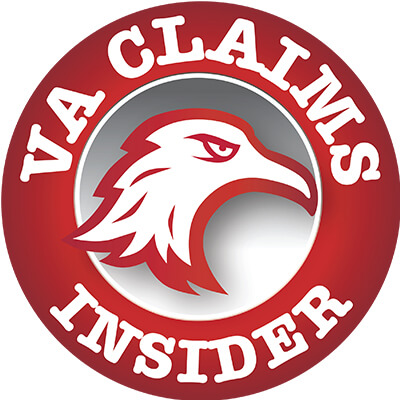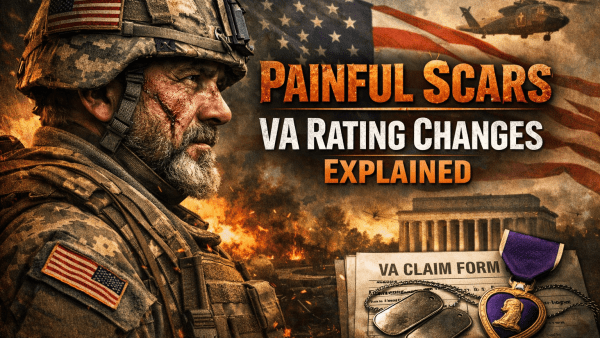Looking for Expert-Level VA Claim Answers?📱Call Us Now! 737-295-2226
There are a number of conditions that the VA considers unratable. This is due to several factors considered. The first and most obvious is that the condition is not considered service-connected and existed prior to service (EPTS). The next factor would be whether or not the condition is determined to affect the veteran’s overall ability to function. Finally, if the condition is seen to have been caused by the poor decisions of the veteran or by natural causes, it will not be considered for a rating.
Since there are a great number of conditions and symptoms that do not qualify for Military Disability Benefits, the rest of this article will be focused on presenting only the most commonly seen.
As the following cannot qualify for Military Disability Benefits, they are disqualified from being rated in any way unless granted a clear exception due to another condition.
For example, while PTSD is considered ratable by the VARSD, alcoholism is not. If a veteran has turned to alcoholism as a result of their PTSD and they were fired because of it, the firing because of alcoholism would not be considered in rating their PTSD. The alcoholism is not able to be rated due to it being a condition affected by the choices of the veteran. They may receive benefits for PTSD, but not for alcoholism or the symptoms of alcoholism.
Learning or Developmental Disabilities
Disabilities such as dyslexia, dyscalculia (inability to order numbers correctly), dysgraphia (disability which affects the ability to write and/or organize cognitive thoughts for written communication), and processing deficits (affect the ability to interpret sensory data) are considered not ratable.
Other examples would be intellectual disability (such as mental retardation) and attention deficit and hyperactivity disorders (ADD and ADHD).
Congenital or Hereditary Conditions
A congenital condition is defined as any condition occurring during birth or the first month after birth.
Hereditary (or genetic) conditions occur naturally based on the genetics of the person and are considered unavoidable no matter the circumstances of the person’s life.
Both of these are considered EPTS and, therefore, are not ratable.
Examples include:
- Gigantism
- Dwarfism
- Defective vision
- Genetic or inherited diseases
- Developmental defects
- Physical defects from birth such as missing organs or limbs, or deformations
It should be noted, however, that while the conditions themselves may not be rated, if any of these conditions were worsened due to incidents occurring during service, then the aggravation would be considered ratable.
Also, if the genetic condition never developed until the time spent in service, it may then be considered ratable.
Any Condition Caused by Substance Abuse or Impulse Control
Any abuse of an addictive substance is automatically considered not ratable. The abuse is considered to have originated a choice of the individual. This pertains to alcohol and all other drugs.
Any effects from the use of tobacco products are not ratable. This includes occurrences of cancer.
Any other abuse disorder or addiction will not be rated, with the exception of eating disorders such as bulimia or anorexia.
Any impulse control disorder (meaning the inability to resist urges or impulses that may cause harm to yourself or others) will not be rated.
Finally, obesity will not be rated by the VA.
Personality Disorders
While personality disorders are a form of mental disorder, the following are not considered ratable by the VA:
Anxious or Fearful Disorders
- Avoidant personality disorder. People with this disorder never feel that they are good enough. They suffer from extremely low self-esteem and are very shy and very sensitive to rejection. The deep sense of inadequacy they suffer from often leads them to avoid any social interactions
- Obsessive-compulsive personality disorder. The person with this condition is usually obsessed with perfectionism. This manifests in the person being extremely orderly and strict about closely following all rules. If they feel out of control they tend to withdraw emotionally. Their need for perfection often interferes with them forming close relationships or being able to solve problems.
- Dependent personality disorder. Those suffering from this condition will depend too much on others to meet their needs both emotional and physical. They may be fixated on a particular person or many. This disorder makes it difficult for the person to make their own decisions or perform certain tasks.
Emotional, Dramatic or Erratic Disorders
- Antisocial personality disorder. This condition is attributed to people who have no regard for the basic rights of others. They are often regularly involved in illegal behavior.
- Borderline personality disorder. The person with this condition cannot see gray areas when distinguishing between right and wrong. They often have trouble with self-esteem and self-identity as a result.
- Narcissistic personality disorder. Named after Narcissus, the Greek icon infatuated with himself, this condition describes those who are significantly self-focused. They care little for others, feel as if they are owed the admiration of others, and live out of touch with reality.
- Histrionic Personality Disorder. This condition is embodied by those willing to do greatly inappropriate and radical actions to receive attention. They are obsessed with the attention of others.
Odd or Eccentric Behaviors
- Paranoid personality disorder. The person suffering from this condition will be constantly suspicious of others, lacking all rationality in doing so.
- Schizoid personality disorder. This is determined by a person completely uninterested in the company of others. They have no desire for social interaction or relationships.
- Schizotypal personality disorder- Pertains to a person generally stuck in odd behavior. Typically this person is unable to distinguish the most obvious social cues.
These forms of behavior clash with social norms and expectations but are currently not determined as ratable by the VA. Often these disorders are considered symptoms of a greater disability or injury, in which case the disability determined to be the cause of these disorders may, in fact, be ratable.
The conditions described in this article are by no means the full list of those considered unratable by the VA. Rather they are generally regarded as the most relevant and widely experienced.
Curious as to if your condition does qualify for VA disability?! This is the fastest way to get started and find out what the VA legally, morally, and ethically owes you!
About the Author

About VA Claims Insider
VA Claims Insider is an education-based coaching/consulting company. We’re here for disabled veterans exploring eligibility for increased VA disability benefits and who wish to learn more about that process. We also connect veterans with independent medical professionals in our referral network for medical examinations, disability evaluations, and credible independent medical opinions and nexus statements (medical nexus letters) for a wide range of disability conditions.



